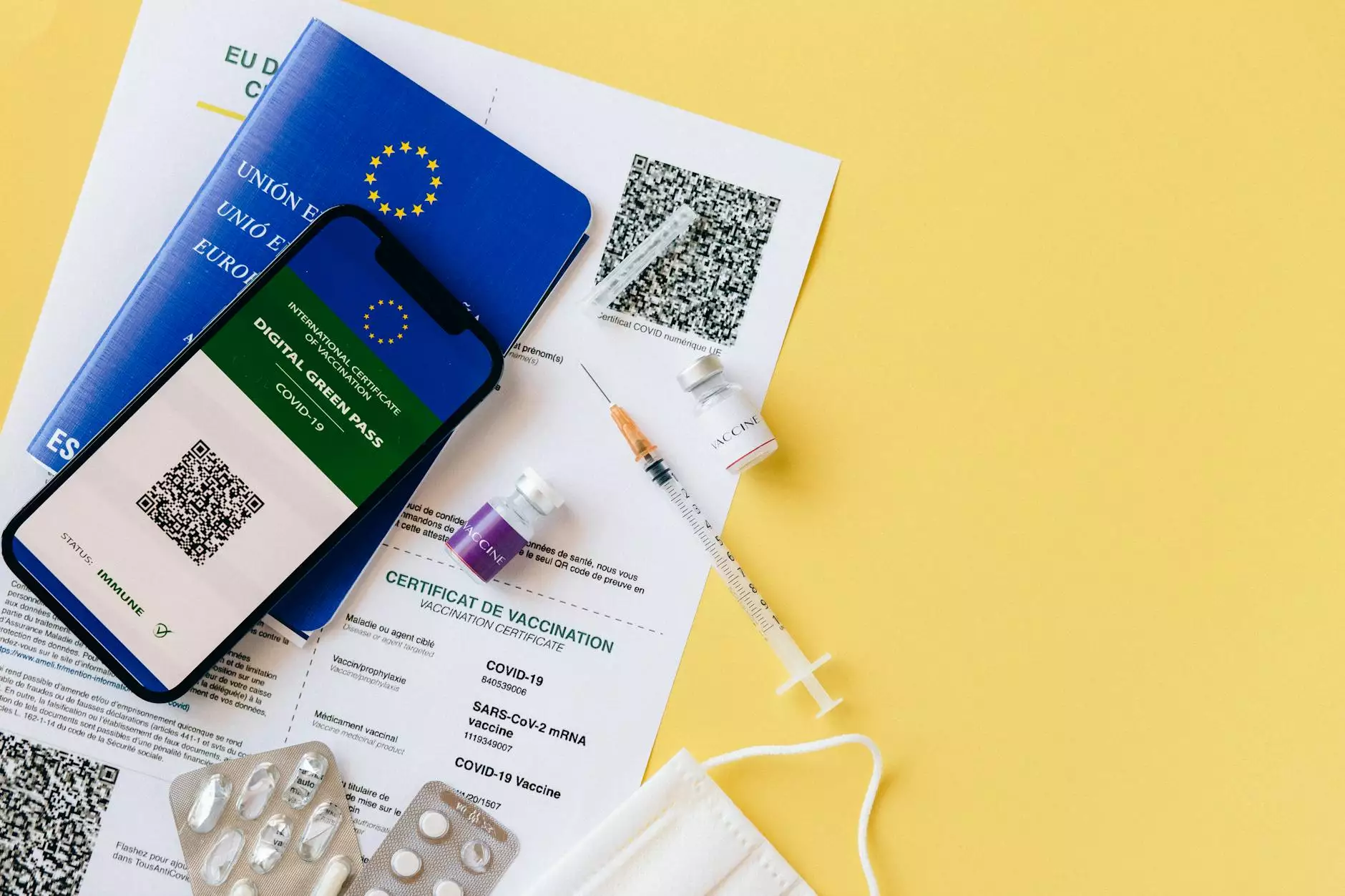The Best Medical Coding Certification: Your Gateway to a Rewarding Career

In today's ever-evolving healthcare industry, the demand for skilled professionals in medical coding is skyrocketing. As healthcare facilities aim to improve their billing practices and reduce errors, the need for certified medical coders has become more critical than ever. If you're looking to step into this rewarding field, obtaining the best medical coding certification is essential. This article will guide you through the intricacies of medical coding certifications, the benefits they offer, and how to choose the right one for you.
Understanding Medical Coding
Before diving into certifications, it's crucial to understand what medical coding entails. Medical coding is the process of translating healthcare diagnoses, procedures, medical services, and equipment into universal medical alphanumeric codes. These codes are essential for billing and ensure that healthcare providers receive proper reimbursement for their services.
The use of standardized codes, such as the ICD (International Classification of Diseases) and CPT (Current Procedural Terminology), helps maintain consistency in medical records and billing. Medical coders play a vital role in this system as they bridge the gap between healthcare providers and payers.
Why Certification Matters
Achieving certification in medical coding significantly enhances your credibility as a professional. Here are several reasons why certification is paramount:
- Increased Job Opportunities: Many employers prefer or require certification as a criterion for hiring. Being certified can open doors to a wider range of job opportunities in the healthcare sector.
- Higher Earning Potential: Certified medical coders typically earn higher salaries than their non-certified counterparts. The investment in your education pays off in the long run.
- Professional Recognition: Certification demonstrates your commitment and expertise in the field, enhancing your reputation among peers and employers.
- Staying Up-to-Date: Certification programs often require continuing education, ensuring that you remain informed about the latest coding practices and regulations.
Types of Medical Coding Certifications
There are several reputable organizations offering certifications in medical coding. Each certification varies in focus and relevance, allowing you to select the one that aligns best with your career goals. Below are some of the most recognized certifications in the industry:
1. Certified Professional Coder (CPC)
The Certified Professional Coder (CPC) credential, offered by the American Academy of Professional Coders (AAPC), is one of the most sought-after certifications in the industry. The CPC exam tests your knowledge of coding for professional services in the outpatient setting. This certification is ideal for those looking to work in physician offices and outpatient clinics.
2. Certified Coding Specialist (CCS)
The Certified Coding Specialist (CCS) is offered by the American Health Information Management Association (AHIMA). This certification is designed for coders working in hospitals and focuses on inpatient coding. The CCS credential indicates advanced proficiency in coding and is suitable for those looking for more complex coding responsibilities.
3. Certified Coding Associate (CCA)
The Certified Coding Associate (CCA) is another certification provided by AHIMA. It is an excellent starting point for individuals new to the coding field. The CCA credential demonstrates foundational knowledge in coding, making it a great entry-level option.
4. Certified Outpatient Coder (COC)
The Certified Outpatient Coder (COC), also offered by AAPC, is specifically designed for coders who work in outpatient settings. This certification demonstrates your ability to code inpatient procedures and ensure compliance with regulations.
5. Certified Risk Adjustment Coder (CRAC)
The Certified Risk Adjustment Coder (CRAC) focuses on the coding of risk adjustment data. This certification is valuable for professionals working in managed care organizations, as it helps providers receive appropriate reimbursement based on the health status of patients.
Choosing the Best Medical Coding Certification for You
Choosing the right certification can be daunting, especially given the various options available. Here are some factors to consider to help you decide:
- Your Career Goals: Identify where you see yourself in the medical coding field. If you want to specialize in outpatient coding, consider the CPC or COC. For inpatient coding, the CCS might be more appropriate.
- Your Level of Experience: If you're just starting, certifications like the CCA can help you build your foundational knowledge. More experienced coders might aim for advanced certifications like the CCS.
- Employer Preferences: Research job postings in your desired area and see what certifications employers typically seek. This can help you align your certification choice with industry demands.
- Cost and Time Commitment: Each certification has varying costs and preparation times. Ensure that you choose one that aligns with your budget and availability to study.
Path to Certification: Step-by-Step
Once you have decided on the certification you wish to pursue, follow these steps to achieve your goal:
- Research the Certification Requirements: Every certification has specific prerequisites. Familiarize yourself with the eligibility criteria and the application process for your chosen certification.
- Enroll in a Medical Coding Course: Many individuals benefit from structured learning. Enroll in an accredited medical coding course that covers the necessary material for the certification exam.
- Study Thoroughly: Dedicate time to study the various coding systems, guidelines, and regulations. Utilize textbooks, online resources, and practice exams to prepare effectively.
- Register and Take the Exam: After sufficient preparation, register for the certification exam. Ensure you have all the necessary materials ready for the test day.
- Maintain Your Certification: Once certified, remember to pursue continuing education credits to maintain your certification status. This ensures you stay up-to-date with changes in coding practices.
Career Opportunities in Medical Coding
With a certification in medical coding, a wealth of career opportunities awaits you. Here are some potential job roles you can explore:
- Medical Coder: Responsible for assigning codes to diagnoses and procedures for billing and record-keeping.
- Medical Billing Specialist: Focuses on billing processes, working directly with insurance companies and patients to ensure accurate billing.
- Compliance Auditor: Reviews coding practices and bills to ensure adherence to regulatory requirements and reduce error rates.
- Health Information Technician: Manages patient health information, utilizing coding knowledge to ensure accurate record maintenance.
- Consultant or Educator: Experienced coders may transition to roles where they train others or provide consulting services to healthcare organizations.
The Future of Medical Coding
The landscape of medical coding is continually changing, influenced by advancements in healthcare technology, government regulations, and payment models. Here are some trends shaping the future:
- Increased Automation: As technology advances, more coding processes are being automated. Coders may need to adapt to new tools that assist in coding accuracy.
- Telemedicine Coding: With the rise of telemedicine, coding professionals will need to learn new coding guidelines specific to virtual visits.
- Emphasis on Value-Based Care: Healthcare is shifting from a fee-for-service model to value-based care, requiring coders to understand new metrics for patient outcomes.
Conclusion: Your Journey Towards the Best Medical Coding Certification
Embarking on a career in medical coding is both rewarding and challenging. By obtaining the best medical coding certification, you set yourself apart in a competitive job market and open doors to numerous career opportunities. Whether you choose to pursue the CPC, CCS, or another certification, dedication, and commitment to learning will be your keys to success.
The healthcare industry is in constant need of skilled and certified medical coders, and now is the perfect time to take the first step. Invest in your future today by exploring the courses and certifications that can help you achieve your career aspirations in medical coding. For more information on courses, resources, and support, visit pmbausa.com.









